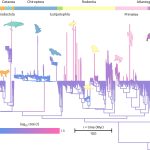Brain structure differences in kids with conduct disorder
Recent research conducted by a collaboration of institutions, including the Universities of Bath and Birmingham, has revealed significant structural differences in the brains of...
Scientists discover how neurons age, offering hope for early detection of brain diseases
Researchers from King's College London have made an important discovery about how different parts of nerve cells (neurons) age.
This finding could help in early...
Scientists find way to help patients ‘speak’ using only their thoughts
In a groundbreaking study, researchers from Tel Aviv University and Tel Aviv Sourasky Medical Center (Ichilov Hospital) have demonstrated that a person can "speak"...
How our brains track time: new study reveals surprising insights
Have you ever felt like time flies when you're having fun?
According to a new study by researchers at UNLV, there’s a lot of truth...
Inflammation in young adults linked to lower cognitive skills in midlife
Higher inflammation levels in young adults are associated with lower performance in cognitive skills testing in midlife, according to a new study by researchers...
New light-activated compounds offer hope for treating neuropathic pain
A team of researchers from the Institute for Bioengineering of Catalonia (IBEC) has developed an innovative way to treat neuropathic pain using light.
This new...
Scientists solve brain size mystery: humans break evolutionary trends
A groundbreaking study published in Nature Ecology & Evolution has revealed that the largest animals do not have proportionally bigger brains, with humans being...
New brain circuit discovery could explain how we detect faces
Scientists at the National Institutes of Health (NIH) have discovered a brain circuit in primates that rapidly detects faces.
This finding not only helps explain...
Regaining hand function after stroke: effective strategies
A stroke can significantly impact many aspects of physical function, and loss of hand movement is among the most challenging consequences.
The ability to use...
The power of mindfulness and meditation in neurological health
In recent years, mindfulness and meditation have been recognized not just as practices for mental calm and balance but also as potential tools for...










